- Home
- Linda Coles
Tin Men: A Gripping Chrissy Livingstone Novel Page 7
Tin Men: A Gripping Chrissy Livingstone Novel Read online
Page 7
“No. But I suspect it’s not the first one your father received. And if there are more letters. . .” He was silent for a moment. “What was your father up to, I wonder?”
Chrissy sat quietly, all thoughts of her food forgotten now, while she pieced the new information together with what she already knew.
And stuff you don’t know about, remember?
Yeah, I know.
“Well, I don’t know, but I’m sure we’ll find out.”
Chapter Nineteen
There were too many things whizzing about in her head. Chrissy had had hardly a wink of sleep, and it was nothing to do with the fish and chips. Adam had lain beside her, snoring gently, and she wished she’d been able to do the same. As she thought over events from the last few days, she realised there were far too many questions without answers, what with the diaries, the tin of faces and now the letter that Adam had informed her of only a few hours ago. He’d shown it to her when they’d arrived home. It didn’t say much, really—just alluded to a scheme and money owing.
Oh, and a threat.
I’ll not let you rest until I have back what is rightfully mine.
A threat that now would never materialise, since Gerald Baker was already dead. But it intrigued Chrissy nonetheless, because she hadn’t known of her father being involved in any kind of shady financial scheme. His business had always run above board. Or so she’d believed.
And how do you know that for a fact, Chrissy?
Dad wouldn’t scam people, that’s why.
Sure about that?
And what about the man she’d seen standing by the car smoking a cigarette at the funeral? And what about the man she’d seen in the bar, someone Clara knew as Uncle Tom? He’d left soon after, and she’d never had a chance to chat, but he could well have been a genuine friend and not a foe. Her father, after all, had been a popular man; the church service turnout was proof of that. But there was something going on—of that, Chrissy was certain. The question now was what.
With Adam still gently snoring beside her, she pushed the quilt back, slipped into her slippers, grabbed her robe from behind the bedroom door and crept downstairs to the kitchen. The clock on the cooker was the only light, illuminating the room with a grey hue. It read 3:35 AM— far too early to be getting up. Silently, she tested the kettle for water and then topped it up to make tea. While she waited for it to boil, she sat down in the soft chair in the corner of the kitchen, a chair that she often took her morning tea in when the sun was streaming through the windows. She clicked the lamp switch and it casted a warm, peachy glow. It was chilly at such an early hour, so she pulled her robe in even tighter around her, kicked her slippers off and tucked her legs underneath her while she waited. The kettle eventually clicked off and the noise from the boiling water receded, but Chrissy was in no rush to fill her mug. She sat for a moment longer, turning the pieces of the puzzle over and over in her head.
Maybe Julie was right.
Maybe something had happened to their father, something more sinister than just a regular heart attack.
No sooner had she had the thought than Chrissy dismissed it for being stupid. What evidence did she have? None. A spiteful letter, a couple of folks she didn’t know turning up at a public funeral, and a cabinet full of diaries did not make for a murder investigation. Neither did a biscuit tin with photographs of young boys in. Yes, she thought, it was probably just the old spook in her taking over.
Once a spook always a spook.
And Dad had had a heart problem anyway.
Chrissy always saw the intrigue, the bigger picture, in what others would term normal circumstances, she admitted. In her mind, there was always a more sinister angle. That’s what she’d been trained to do: use her inquisitive mind, read between the lines of a situation, as it were. So, what was she going to do about this, then, if anything? Well, she had to satisfy her own curiosity if nothing else.
But right now, she needed tea. She padded in bare feet over to the work surface and opened the metal tea box to find a sachet of ‘relaxing sleep’ tea. She plunked it into her cup and poured hot water onto it. There was no point going for regular breakfast tea at this hour; she didn’t need the caffeine if she was ever going to go back to sleep. And she certainly wasn’t planning to stay up at 3:35 AM. As she waited for the teabag to steep, she made a mental list of all the things she’d need to do. First on the list was the tin of faces. Who were those boys, and why had their photos been hidden in the tin?
Something, a feeling in her stomach maybe, had told her not to tell anyone, not even Adam, about her find that day; if it turned out to be nothing, there was no point in upsetting anybody else. No, until she had something concrete to go on, she’d keep it close to her own chest. She tossed the hot teabag into the recycle bin and added a splash of cold water to her mug. Then she made her way back to her comfy chair and tucked her feet up underneath her again, sipping on her warm drink. In another two hours, Adam would be up, ready for his morning jog, and she hoped she’d be back in bed and back to sleep long before then.
When Chrissy did awaken again, it was 4:45 AM and she wasn’t back in her bed. She’d fallen asleep in the kitchen chair; her still-full mug of tea sat on the floor beside her. At least she hadn’t spilled it before dropping off. Her neck was stiff from sleeping at a strange angle, and she massaged it, trying to soothe the ache.
Something had woken her, and it wasn’t the light from the lamp in the kitchen. There was movement upstairs: she could hear footsteps, and they sounded heavier than those of her two boys.
And the boys aren’t in anyway, so it isn’t them.
Must be Adam, then.
Her brain felt muddled from interrupted sleep, and she turned groggily towards the door as the footsteps began heading down the staircase. Yes, it was definitely Adam. She ran her fingers through her hair and stood, then walked over to refill the kettle and make them both a morning cup of tea. The door opened, and Adam entered, his own robe tied loosely around his waist, pyjama legs protruding from the bottom. His feet were bare, his hair ruffled at odd angles.
“I wondered where you’d gone,” said Adam, “I woke up and you weren’t there.” His voice sounded petulant, like a 10-year-old version of himself.
“I think I ate too late,” she said lamely, going to him and wrapping her arms around him. “I woke at three thirty and came down to make some tea, but I fell asleep in the chair. I hope I didn’t disturb you?”
He stroked her head. “No, I needed the loo, but when you weren’t there, I thought I’d better investigate.” He was smiling as he said it.
“Well, you can call the cops off. I’m safe and sound in the kitchen. Want some tea?”
“Love some, please.” Adam took her place in the old comfy chair and rested his head back. “Did I have a lot to drink last night?” he asked
“No, you only had a pint. Feeling rough?”
“My head is banging, and my mouth feels terrible. Mouth as dry as a hamster’s cage floor.” Smiling, Chrissy handed a mug of tea over. She sat perched on the chair arm and raised the subject of her father again.
“Do think there was anything in that note that was sent to Dad? I mean, any truth in it?”
“Maybe. Though if they did have any ill intentions, there’s no point doing anything now.”
She watched him raise his mug to his lips and sip thoughtfully. Was he convincing himself? Or Chrissy?
“And his heart issue was no surprise,” he went on. “Can’t fake a cardiac arrest to order.”
Dr. Livingstone now, are we?
Chrissy wasn’t convinced. And having spent most the night regurgitating everything she knew so far, far-fetched or not, there was no way she was going to leave it to lie. As soon as Adam was out of the house, she would make a plan to find out more about what she’d discovered so far.
She hoped with all her heart it was all a big non-story.
Chapter Twenty
Adam was in no rush to go. It see
med an age until he finally left the house for work, leaving her in peace and quiet for the rest of the day. The boys wouldn’t be back until around 4 PM. As soon as he’d gone, she made fresh coffee, grabbed a half packet of biscuits and headed to her office upstairs. Keeping the attic room to herself had seemed the most obvious thing to do, given her previous profession. Citing her own need for privacy, no one had batted an eyelid. Adam had his office downstairs; she had hers in the roof.
Who was that mad fictional woman who was kept in an attic?
Your hair isn’t long and grey, Chrissy.
She fired up her Mac and went straight to Google. She sat watching the cursor flicking like a car indicator while she decided what she would put in the search box.
Where the hell do I start?
At the beginning.
Deciding her father’s name was probably as good a place as any, she typed in Gerald Baker. There were thousands of search results, and she clicked on the first one. It was an article from the local newspaper about the death of her father and the huge turnout at the local church. There was a lovely photograph of him taken some years back, his hair far thicker than it had been in recent months. And less grey.
“Where did they dig that one up from?” she mused. Scanning the article, she realised there was little she didn’t already know, so she closed the page and went back to the search results. She scanned down the list, although she had no clear idea what she was looking for. When nothing of note grabbed her, she clicked ‘next’ at the bottom and loaded another page of results. Halfway down the page a headline caught her eye. From the URL it looked like someone’s blog. It read: Robbing Peter to pay Paul? Modern Robin Hood or Plain Thief?
She clicked on the link, and there was another photograph of her father, this one more recent. She scrolled through the text, scanning, looking again for something to catch her eye. A paragraph about halfway down leapt out at her, and she read, and then re-read, the words with disbelief. The author of the blog post was accusing Gerald Baker of stealing £80,000 from his wealthy cousin. A Ponzi scheme, the writer called it, though he had no proof.
Chrissy sat back in her chair and rested her fingertips on her chin in thought. It wasn’t the first time she’d heard the word “Ponzi” in the same sentence as her late father’s name. And that meant there would be more articles about it—about him—she realised dully, though they might not be posting online like this guy was. She scrolled back to the top and read the whole article. The writer was careful with his wording so as not to directly accuse her father, but the sentiment was there in plain sight. And it wasn’t as if Gerald Baker was going to sue for defamation; nor was his estate.
Opening another browser window, she typed Gerald Baker Ponzi and hit search. Her heart sank. It seemed there were more than a few other disgruntled people voicing their opinions.
“Why have I not heard anything?” she said out loud. Then she remembered a throwaway comment she’d heard some nights ago while she was at Julie’s house. Her mother had been sat stoically on the sofa while they were about to organise her father’s funeral arrangements and had said she didn’t care what they decided—after what he’d done.
After what he’d done.
The letter.
And then the other letter.
She topped up her mug with fresh coffee from the cafetière and mulled it over. If her father had been running a Ponzi scheme, there would surely have been records kept; he’d have had to know who had invested what and when, and when returns were due.
And that in itself posed another problem: those people, whoever they all were, would want what was due to them whether Gerald was deceased or not. And that brought her on to another thought—his will.
It hadn’t been mentioned as yet. She reached for her phone and called Julie. It went to voice mail.
Spa time.
She dialled her mother with the excuse of seeing how she was.
“Darling,” her mother said by way of greeting, not sounding nearly as frail as she had been. Chrissy was relieved to hear she was still speaking to her and not holding a grudge. It was too soon after her father’s death for quarrelling.
“Hi, Mum. Thought I’d see how you’re faring. You sound a lot brighter.”
“I feel it—thank you. Must be the sunshine.”
“Well, I’m glad. Listen, I wondered if Dad had left a will? He was always so orderly with his paperwork, so I figured he did.” The line went as silent as a monastery at night. “Are you there, Mum?” Chrissy enquired, thinking they might have been disconnected.
“I’m here. Why do you want to know? Hoping for something left to you or the boys?” There was a certain snideness in her mother’s voice, and Chrissy picked up on it immediately.
“Good Lord, no. I was merely thinking about you not needing the hassle if he died intestate. I couldn’t care less whether he left me, or any of us, anything.” The words came out in a rush, but it was true. Chrissy and Adam had both been careful and proactive in investing the money they earned.
I certainly don’t need it.
“Then why the enquiry? Why do you wish to know?” her mother said, her voice still strangely testy.
In for a penny, in for a pound … “I was thinking back to that letter, actually. The threatening one that you say you received, or Dad received. I didn’t want any further angst on your part, worrying whether someone was planning on suing his estate.”
“I’d hardly call it an estate,” her mother said.
“It’s still classed as his estate, no matter how small.” Chrissy knew her mother was being deliberately obtuse, but let it pass. The conversation would probably have gone better in person, but since it wasn’t to be, Chrissy boxed on.
“So, have you had any other correspondence about Dad being a crook?”
Choice of words, Chrissy!
“He’s not a crook!” her mother screamed into the phone, loudly enough that Chrissy pulled it away from her eardrum.
“Well?” asked Chrissy, putting the phone back to her ear and ignoring her mother’s obvious agitation.
“It’s none of your business.” The phone line went dead; her mother had hung up, leaving Chrissy staring at a blank screen and wondering how she was going to broach the subject again.
How odd, she thought uneasily. She’d clearly struck a nerve.
Chapter Twenty-One
Chrissy sat back in her chair, nonplussed. That certainly hadn’t been the reaction she’d expected from her mother. She hoped things weren’t going to get messy. Her father had clearly been involved in something, and had owed money. What she needed to ascertain was exactly how much, and whether it was individual debt or had been loaned against the house, making her mother jointly liable for repayment. Even though Gerald Baker was dead.
The thought was ghastly, but real nonetheless—her mother could well be forced to sell and turfed out if there wasn’t enough cash available.
Chrissy needed time to think. Glancing at the clock on her computer screen, she was startled to see that time had wandered off without her. It was almost lunchtime.
“I need some air,” she said. She closed her computer down, gathered the remains of the cold coffee and took the tray down to the kitchen to load the items into the dishwasher. Her mind was on overdrive, and the caffeine she’d consumed was making it worse. She filled a glass with water and gulped it down in one go. It felt cool and cleansing on her insides, though she was conscious it was hitting an empty stomach. She opened the fridge and pulled out margarine, ham, lettuce and mayo, then took a couple of slices from the loaf in the bread bin and made herself a sandwich and carried it out on to the patio. The lunchtime sun was high in the sky and the temperature was about right—not too hot to get burned and warm enough to sit in and enjoy the pleasantness without getting all sweaty.
You sound like your sister.
No one sounds like Julie.
Chrissy didn’t mind sweat and worked hard keeping her body in shape, though she preferr
ed the tarmac and pavements to germ-ridden gyms. Julie did neither, apart from occasional treadmill walks; she preferred to eat like a gerbil instead.
She chose a spot on the edge of a low retaining wall, sitting directly on the cool paving stones, her legs out in front of her on the grassy lawn. It was always peaceful in her garden out the back, the only sounds being birds or the odd lawn mower. Occasionally, a light aircraft flew over, a four-seater type of affair; the owners could have been any of a number of her neighbours, who certainly had the finances to own their own wings for trips out on a sunny day.
In another week, Chrissy thought, she’d be on an airplane herself, though larger and a whole lot more comfortable, sat in business class with her feet up, a glass of bubbles at her elbow. She’d be away from Adam for a whole week at ‘the conference,’ a break that couldn’t have come at a better time. Her ticket was purchased and tucked away on her smartphone, and ahead of her lay seven days of Californian lifestyle—her favourite alternative to the leafy suburbs of Surrey.
A sparrow nipped in close to her, daring itself to peck the few crumbs that Chrissy had let drop, and she watched it for a moment before tearing a small part off her crust and tossing it close by. The sparrow swooped in, grabbed it and took it to the relative safety of the edge of a geranium plant spilling baby pink flowers over onto the path. In a couple of beaks-full, the bread was gone. It turned back to her, its tiny inquisitive face hoping for more. Chrissy obliged with one last piece and let the bird have its way. A couple more had gathered in the trees nearby, as they often did. How did they always seem to know something was on offer to one of their feathered friends nearby? Seagulls were the same—toss a piece of bread on the beach and you’d be nearly knocked over in the stampede to get to it before another gull nearby did. They always knew.
Next week, her early-morning runs would take her along the beach, on a round trip journey from Santa Monica Pier to Venice Beach. Chrissy loved a dip in the ocean at the end of it; it was the most perfect way to cool down, bar none. The whole LA lifestyle was the polar opposite of leafy Englefield Green and her role as wife and mother—and, she knew, one she should have given away long ago when she’d retired from her life as a spook. Why she’d chosen to keep the pretence up she didn’t really know, but it was too late to change it now. And she enjoyed the time away, so why not keep it? She wasn’t doing any harm. It wasn’t like she had a complete second life, used a different name and had another husband or family tucked away secretly. It was only a house.

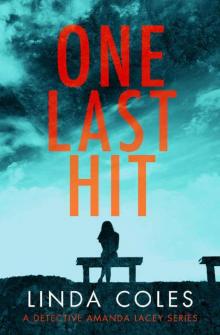 One Last Hit
One Last Hit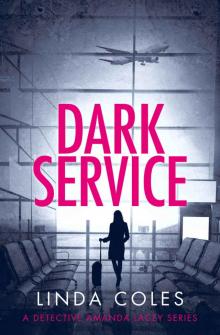 Dark Service
Dark Service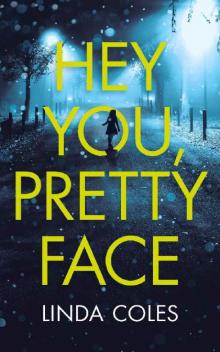 Hey You, Pretty Face
Hey You, Pretty Face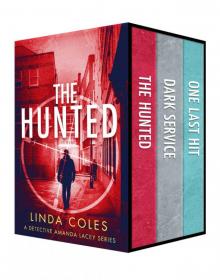 Detective Amanda Lacey Box Set
Detective Amanda Lacey Box Set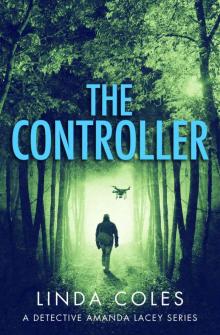 The Controller
The Controller Hot to Kill
Hot to Kill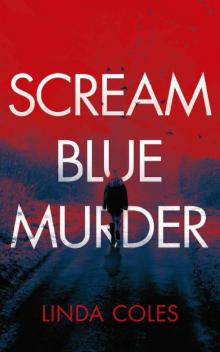 Scream Blue Murder
Scream Blue Murder The Hunted
The Hunted Jack Rutherford and Amanda Lacey Box Set
Jack Rutherford and Amanda Lacey Box Set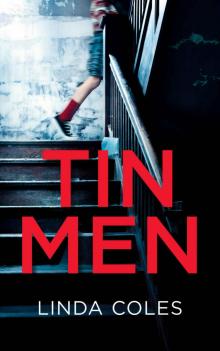 Tin Men: A Gripping Chrissy Livingstone Novel
Tin Men: A Gripping Chrissy Livingstone Novel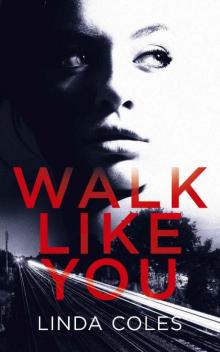 Walk Like You
Walk Like You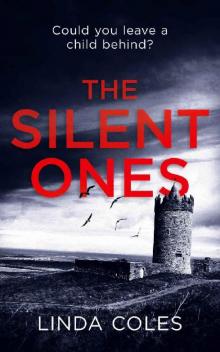 The Silent Ones: Could You Leave A Child Behind? (Chrissy Livingstone Book 3)
The Silent Ones: Could You Leave A Child Behind? (Chrissy Livingstone Book 3)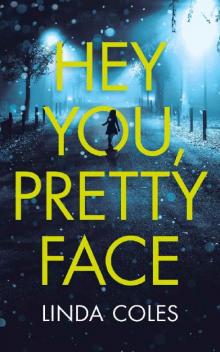 Hey You, Pretty Face - A baby left for dead. Three girls stolen in the night. A Psychological Thriller. (DC Jack Rutherford Book 1)
Hey You, Pretty Face - A baby left for dead. Three girls stolen in the night. A Psychological Thriller. (DC Jack Rutherford Book 1)